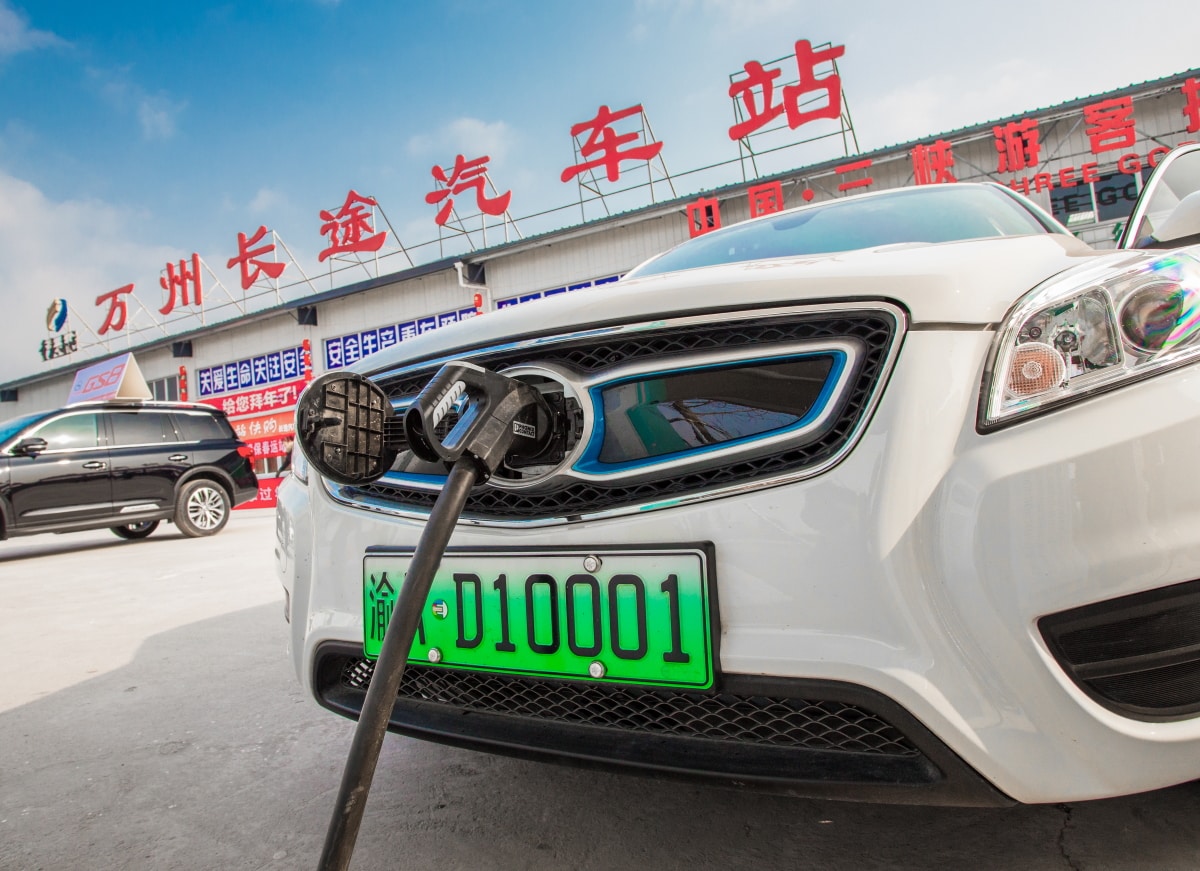As zero-emission becomes increasingly decisive in strategic policies, Asian governments and EV manufacturers are trying to do their part for global environmental sustainability. China has been on the forefront with the Chinese electric vehicle (EV) sector becoming a global disruptive force.
Ranking as the largest global EV market in terms of market size, China for the past three years, recorded the sharpest spike in annual EV passenger sales across the world, according to BloombergNEF Electric Vehicle Outlook 2020. This spike in sales is expected to persist, despite hindrances brought by the global Covid-19 pandemic. Consistent with these studies, by 2030, together with Europe, China will account for 72% of the global EV sales.
The Chinese EV market owes a large part of its success to favorable government policies and an abundance of support. Last year, China announced that it wants to become carbon neutral by 2060. Switching from gas to electric vehicles is one milestone to achieve this goal and the government is supporting the EV industry accordingly.
In November, China accounced plans to develop a comprehensive and fully integrated New Energy Vehicle (NEV) and Intelligent Connected Vehicle (ICV) eco-system over the next 15 years. One month earlier the Chinese government introduced the Technology Roadmap 2.0 for energy-saving and new energy vehicles.
Furthermore, China’s rich resources of raw materials for development and production have led to a booming battery market. Rapid developments in the EV industry in recent years have bolstered battery demand, leading battery producers to raise output capacity. Electric vehicle battery manufacturers like CATL and BYD, account for almost one-fourth of the global market share.
According to Abigail Sun, an Equity Analyst at Schroders, battery costs have fallen by more than 70% since 2014, narrowing the price gap between EVs and conventional gasoline cars. This is leading to increased competition, “giving consumers more choice.”
Homegrown Chinese EV landscape
Even though the Chinese EV market is already the largest in the world, it still has enormous growth potential. As per McKinsey figures, EVs were only 0.01% of China’s auto market between 2009 and 2012. This year, estimates are that 1.9 million EVs will be sold in China, meaning a growth of 51% and a 9% share of all cars sold.
China is also the world’s largest car market. 30% of global car sales were in China in 2020, up from 27% in 2019. Most industry experts suggest EVs have many years of growth ahead in the country.
Chinese carmakers, looking for growth opportunities for new companies continue to enter the EV realm. The passenger vehicle market in China consists of three types of companies: local automakers like Geely, Chang’an, Dongfeng, and BYD, start-ups like Nio, and Original Equipment Manufacturers (OEMs) that have formed joint ventures with Chinese companies, including Chery (with Jaguar Land Rover), GAC (with Toyota, Honda & Fiat), and Brilliance Auto (with BMW).
New homegrown EV start-ups such as Nio and Xpeng, also have taken the auto world by surprise. Nio is often described as China’s Tesla – spending big to establish itself.
“Chinese EV makers benefit from a comprehensive and developed value chain domestically”, says Phil S. Lee, Head of Equity Research, Mirae Asset Global Investments. “China’s strength in key components such as batteries and other auto parts like electric motors even convinced Tesla to start production in China in order to enjoy these advantages. Chinese EV makers are also able to capitalize on favorable government policy, consumer readiness to embrace EVs, and access to lower-cost parts by virtue of being in China.”
Asia on EV growth path
The rise of the EV industry has presented investment opportunities not only in China but all over Asia. This is also led by the rapid growth seen in the Chinese EV sector. Its ASEAN neighbors are showing signs of progress in the EV sector.
In the last several years, ASEAN members have taken meaningful action towards creating a more climate-conscious region. The progress is especially significant in their latest initiative, the commitment to reducing vehicle-related emissions.
Other initiatives undertaken by Southeast Asian policy-makers include consumer incentives to buy EVs, increasing investments in EV infrastructure, and more available options for EV buyers.
Thailand, for instance, is getting more serious about EVs. The government laid out EV roadmap plans to increase electric vehicles’ share of domestic EV production to 30% in 2030. Furthermore, Thailand wants to become an ASEAN EV hub by 2025.
India, which struggles with enormous air pollution, is also making progress in the field of EVs. According to the International Energy Agency, more than 30% of new vehicle sales in India will be electric by 2030. This will mainly be achieved through the electrification of two/three-wheelers.
Japan has announced recent plans to direct more investment and attention to its slowly surging EV market. Japan has committed to zero-emission status by 2050 and pledges to reduce emissions by 26% by 2030. The country plans to ban new sales of internal combustion vehicles (gasoline and diesel engine vehicles) in the mid-2030s in order to achieve the zero-emission goal.










 Australia
Australia China
China India
India Indonesia
Indonesia Japan
Japan Malaysia
Malaysia Philippines
Philippines Singapore
Singapore South Korea
South Korea Taiwan
Taiwan Thailand
Thailand Vietnam
Vietnam Germany
Germany Hong Kong
Hong Kong USA
USA Switzerland
Switzerland Singapore
Singapore
 United Kingdom
United Kingdom







